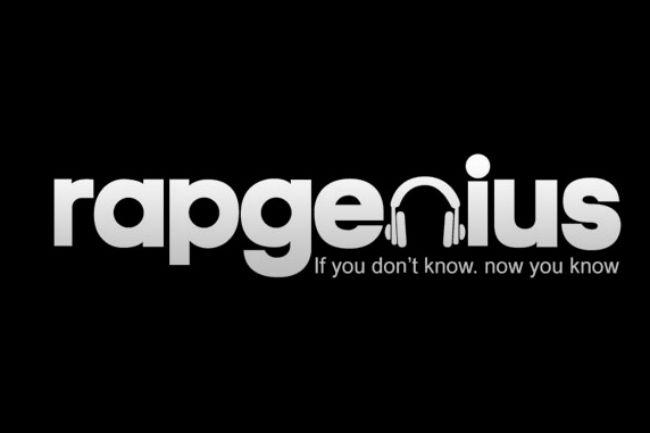
Years ago, the Internet killed lyrics confusion. A Google search can confirm that Kanye said “damn croissants” not “damp, cross aunts,” and that’s a beautiful thing. There are hundreds of websites devoted to archiving song lyrics (some more accurate than others) and the most extensive and beloved of these sites is Rap Genius, a relatively new entry that allows for in-depth annotations and fosters an enthusiastic community of music fans.
But an industry lobbying group called the National Music Publishers Association has declared war on lyrics websites, and Rap Genius is one of its targets. The NMPA sent Digital Millennium Copyright Act notices to a list of 50 lyrics websites — and the NMPA plans to sue for copyright infringement if these websites don’t pull their lyrics.
In a press release, the NMPA made their intentions clear, calling the spree of notices an “unprecedented anti-piracy effort.” This is because the songwriters who wrote the lyrics do not earn money from revenue generated by these unlicensed websites. Some lyrics websites are licensed, which means they share their profits with music labels.
The press release explained the issue in more detail: “These lyric sites have ignored the law and profited off the songwriters’ creative works, and NMPA will not allow this to continue,” said NMPA president and CEO David Israelite. “This is not a campaign against personal blogs, fan sites, or the many websites that provide lyrics legally. NMPA is targeting fifty sites that engage in blatant illegal behavior, which significantly impacts songwriters’ ability to make a living.”
The NMPA decided on the list of problem websites based on the research of David Lowery, a musician and University of Georgia researcher who ranked Rap Genius as the worst offender. Lowery is vehemently opposed to streaming music services for their inability to properly compensate artists, so it’s not surprising that he’s now zeroing in on another area where artists are losing potential revenue. His cause — to help musicians earn a living — is obviously noble. But when it comes to Rap Genius, this is a case of mistaken identity: it’s not just a lyrics website. (Also, licensed lyrics sites pay music labels, not musicians, and if Lowery really wants to get artists a fairer shake he may be better off targeting the NMPA for giving musicians an unfair slice of their “legitimate” cut).
Rap Genius doesn’t only compile pages full of words written by songwriters. Rap Genius is more than a repository for lyrics; it’s an ongoing annotative project in collaboration with many music makers and fans to analyze and preserve lyrics. Well-known rappers like Nas, Kendrick Lamar, and Chance the Rapper participate in the conversation by using the website to explain their intentions to fans. The website’s stated goal is to “analyze rap lyrics like poetry,” not simply aggregate them. That means Rap Genius and its notoriously rambunctious founders may have grounds for a better defense than websites like LiveUniverse, an unlicensed lyric site that recently lost a $6.6 million judgment to the NMPA.
Rap Genius isn’t going to roll over either. “The lyrics sites the NMPA refers to simply display song lyrics, while Rap Genius has crowdsourced annotations that give context to all the lyrics line by line, and tens of thousands of verified annotations directly from writers and performers. These layers of context and meaning transform a static, flat lyric page into an interactive, vibrant art experience created by a community of volunteer scholars,” Rap genius cofounder Ilan Zechory wrote the New York Times, outlining the difference between Rap Genius and your run-of-the-mill lyrics sites. It’s too soon to see whether Rap Genius’ defense will hold water, but it should — anyone who has spent time on the website knows that the goal of the project is delving into the deeper meaning of lyrics, not just copying them.


